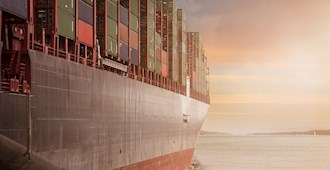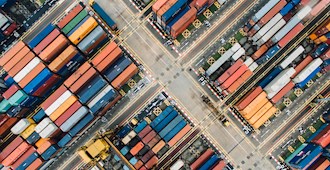Indonesia signs framework agreement with World Logistics Passport
Date: 06/03/2021
- Agreement signed with Indonesia National Shippers’ Council, to realise Indonesia’s economic and trade ambitions
- Part of a wider agreement with the Government of Indonesia, to bolster cooperation with the UAE and strengthen bilateral relations
DUBAI (UAE) / JAKARTA (INDONESIA), MARCH 6, 2021: Indonesia has signed a formal framework agreement with the World Logistics Passport (WLP), which is a major initiative established to increase trading opportunities between emerging markets. Having become the first South-East Asian nation to join the program following the registration of the Indonesia National Shippers’ Council, the latest agreement marks a major step forward in Indonesia’s implementation of the WLP with the support of government authorities.
A framework agreement was signed by His Excellency Sultan Ahmed Bin Sulayem, Chairman of Dubai's Ports, Customs and Free Zone Corporation (PCFC), and Toto Dirgantoro, Chairman of Indonesia National Shippers’ Council, in the presence of senior government officials in the Indonesian government. The Council previously registered with the WLP as a benefits provider, an important role within the program by which the organisation will offer discounted market advisory services to WLP members. The agreement was signed as part of a wider collaboration of trade between the UAE and Indonesia to strengthen bilateral relations, and create opportunities for private and public entities to actively improve existing trading routes and develop new ones increasing the overall size of annual trade in the country.
H.E. Sultan Ahmed Bin Sulayem, Chairman of Dubai's Ports, Customs and Free Zone Corporation said: "We are confident that through our latest agreement between the National Shippers’ Council and WLP, Indonesia trade is expected to accelerate, with greater opportunities and economic growth. Indonesia is a strategically important market for the WLP, as its manufacturing exports see demand across the world. As a beacon for economic progress in the ASEAN region, Indonesia’s entry into the WLP will propel the leadership’s vision to strengthen Jakarta’s position as a major logistics hub and gateway for trade between the Asia Pacific region and the world. Through this collaboration, Indonesia will secure and realise the goals of a sustainable economy to benefit its people, by harnessing our experience and capabilities in creating a centre for global trade in Dubai."
The WLP contributes to the Indonesian government’s realisation of its economic plans, which include building transportation nodes and networks across the archipelago, as Indonesia seeks to become one of the world's top five economies by 2045. Foreign trade makes up about 43% of the country’s total GDP, and by becoming a hub in the World Logistics Passport, Indonesia is set to expand its access to other markets in South America and Africa. The nation will also be able to grow its economy as a re-export hub.
Toto Dirgantoro, Chairman of Indonesia National Shippers’ Council, said: “INSC warmly welcomes and supports the WLP program. With the collaboration between INSC and WLP, it is hoped that Indonesian exporters can reduce logistics costs and improve the nation's economy with greater export opportunities globally especially to the Middle East, South America, Africa, Eastern Europe and others. With the WLP network, we are optimistic that it will have a very positive impact on the Indonesian economy. In the next Asia Shippers Council annual meeting, we will propose to make WLP as one of the solutions in reducing logistics costs.”
The WLP loyalty programme provides traders with a number of financial and non-financial benefits for increased trade volumes, spread across a four-tier membership scheme. Global brands leveraging the WLP and its benefits include anchor tenants such as UPS, Pfizer, Sony, Johnson & Johnson, and LG, all part of the programme’s Platinum tier. The WLP also provides participating members with access to Gold and Silver tiers of benefits, which vary based on the value and frequency of trade.




